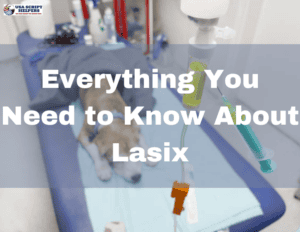What happens when medication doesn’t work?
It is simply not just one issue but many factors which will come up to the problem. Your doctor will have to consider a lot of components and will determine a different approach. Finding the right combination of medications may require some trial and error. USA Script Helpers will explain to you some of the reasons why your medications may not work at their best could include the following:
1. You may not be consuming your medications accurately based on the advice of your doctor or you could be taking other medications which resulted in an interaction. Some medications work best when taken at certain times of the day or with special regard to meals. With specific dosing programs, the tendency will be people may fail to remember to take medications or not take the specific doses at the correct time. Pill planners or pillboxes can help you to organize your medications and remember if you have taken a dose. Ensure to check with your doctor or pharmacist to see if your medication has special instructions about when is the best time to take your medication. Drug interaction might also be one of the causes, which could change how it works in your body. Your medication can interact with other items besides prescription drugs, such as vitamins, herbal products, or dietary supplements. Keeping your doctor or pharmacist informed about everything you are taking can help to avoid these problems.
2. Your lifestyle is also one of the factors that will greatly impact your health. Being overweight, being physically inactive, or smoking can have a huge impact on different medical conditions and the way your medications work. By doing something to help improve your health in so many ways such as working to lose weight, increasing your physical activity, and moderating your alcohol. If you smoke and can quit, it will lower your overall health risk for heart, lung, and other diseases. Making changes to your lifestyle and lowering your risk for disease may help to control your medical condition and improve the effects of your medication.
3. You may not be eating right. You may not be aware that certain foods can interact with your medications as well. These foods can impact how your body takes medication or how the medication works for your body to recover from any condition. Parts of your diet may also interact with your condition to reduce the effect of your medication. Learn and do some research on how to read nutrition labels so you can spot these parts of your diet, such as sodium and carbohydrates, to better manage your intake.
4. If you are suffering from chronic pain, you may experience infrequent pain despite taking a routine medication that was issued by your doctor. This type of pain is called breakthrough pain and can sometimes be managed with different medications or adjusting your current medication with your doctor’s help. These medications can be used on an as needed basis for short-term control.
5. Some conditions, such as chronic pain, can also improve with the help of other treatment options such as exercise, physical therapy, or localized injections. These other options can work together to restore the effectiveness of your medication and improve the control of your condition. Seeing a doctor who specializes in pain management may help you to find the right program for you.
1. I’ve been taking the same prescription medicine for years. Even though I’m careful to take the same amount as always, the medicine is not working like it did in the past. Why is this happening?
There are many factors to consider why the medication is not working. Thus, as you age, normal changes happen in the body. You lose water and muscle tone. Also, your kidneys and liver may not pass the drugs as quickly through your system as when you were younger. This means that many medicines act differently in older people. Aside from that, this might also be due to an unhealthy lifestyle, food that you eat, and other drugs you are taking together with the medication. Medicine may take longer to leave your system. Talk to your doctor if you think your medicine is not working as it should.
2. Why would I need to talk to my doctor about the herbal remedies, vitamins, and over-the-counter (OTC) medicines I take, along with my regular prescriptions that my doctor has issued?
It is very important to tell your doctor about all the medicines you take. Taking certain OTC medicines with your prescription drugs can be dangerous. Some OTC drugs, vitamins, and other remedies can lead to serious problems if used too often or with certain other drugs. Combining drugs without talking to your doctor could make you sick or makes your prescription ineffective due to interaction.
Talk with your doctor about the possible side effects of your medication, and what you should do if they occur. Be sure to find out whether there are any side effects such as muscle pain and weakness, which means you should stop taking the medicine and seek medical attention immediately. Stick to the plan. Unless you and your doctor have discussed it beforehand, never stop taking a prescription or change your dose without your doctor’s approval. Even if your medicine isn’t working as well as you feel it should, a sudden change could be dangerous.
At USA Script Helpers, we want you to be wary of your health, especially your medications. USA Script Helpers is an established pharmacy that retails approved different types of medications for Type 1 Diabetes and Type 2 Diabetes such as Lantus, Lantus Solostar, Lantus vials, Humalog, NovoLog. USA Script Helpers also offers Pet Meds for diabetic pets and other pet medications at a fraction of the cost compared to the USA. Join us, order your medications for you or for your Pet Meds at the comfort of your own home and start saving today.


















